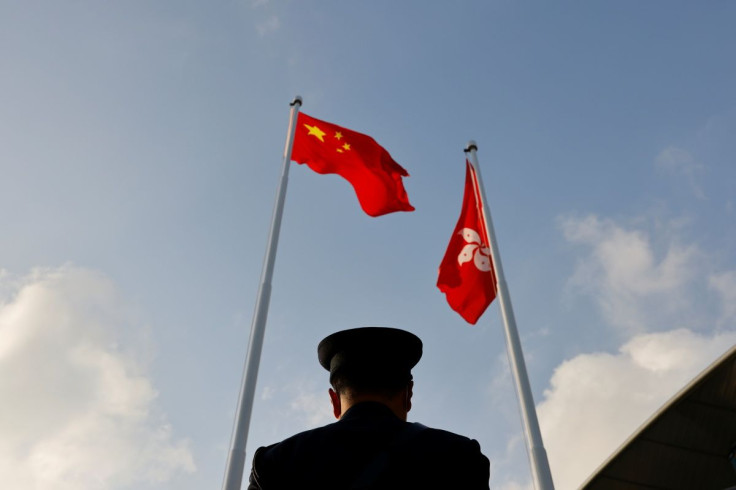China's Anti-Espionage Campaign Has Hit 3 US Consultancy Firms
KEY POINTS
- Multiple China offices of Capvision were reportedly raided earlier this week
- Bain & Company reportedly got a visit from Chinese authorities late in April
- Mintz Group said five of its Chinese staffers were detained after a raid
Three American consulting firms have become the target of China's anti-espionage campaign after the Chinese government first targeted tech companies. The European Union has since denounced China's actions, as investor confidence in the Chinese market has been affected.
Three foreign consultancy firms have so far been affected by the Chinese government's anti-spying campaign, Quartz reported Wednesday. The latest one was the American consulting firm Capvision, which has various offices across China.
Capvision was raided by authorities earlier this week after the Chinese government allegedly found that the company "ignored potential national security risks," as per local broadcaster Jiangsu Television, according to Quartz. The company was also accused of failing to "carry out its responsibilities and obligations to prevent espionage.
Among the Capvision offices raided were those in Shenzhen, Shanghai and the capital of Beijing.
According to the report, an unnamed police officer alleged that Capvision and other consulting firms hired experts to obtain "sensitive data."
Capvision isn't the only company in the consulting industry that drew the ire of the Chinese government.
Late in April, U.S. management consulting firm Bain & Company was visited by Chinese authorities and its employees were questioned, The New York Times reported. The company reportedly said in a written statement that it was cooperating with the government but did not comment on the nature of the investigation.
In March, Chinese authorities raided the Beijing office of American due diligence firm Mintz Group. At the time, five local staffers were detained, Reuters reported.
The company said in an emailed statement to the outlet that aside from detaining its Chinese workers, Chinese authorities shut down its Beijing operations.
The company also clarified that it did not receive prior legal notice regarding a case lodged against Mintz. It has asked the government to release its detained employees.
The latest actions against foreign consultancy firms have damaged investor confidence in China and also triggered concerns over business sentiment in the country.
"The crackdown on consulting firms may be interpreted as a warning to foreign companies operating in China, highlighting the need for businesses to reassess their data handling practices and security measures," said Ani Chaudhuri, CEO of data security platform Dasera.
Eric Zheng, president of the American Chamber of Commerce in Shanghai, also warned that the scrutiny of consulting firms may cause foreign firms to think twice about whether or not the Chinese market was worth investing in.
For Shi Yinhong, professor of international relations at Beijing's Renmin University, the crackdown may be China's way of stepping up "counteraction against U.S. technology containment."
U.S. lawmakers are pushing for legislation that can implement a nationwide ban on TikTok over national security concerns and issues related to user privacy.
China also updated its anti-espionage laws late last month, widening the definition of spying and also prohibiting any transfer of information related to national security.
Following the additional provisions in the Chinese anti-espionage regulations, experts noted that all businesses, not just those in the consulting sector, should be wary, especially with new language added to include "any organization and anyone" as a suspect, as per CNN.
Analysts also noted that the amended laws lack clarity on which specific documents, materials, or data can be considered as posing national security risks, further raising concerns about just how broad the laws will affect foreign business in the country.
Teng Biao, a legal scholar, told DW that the revisions in China's anti-spying laws could be indicative of the Xi Jinping government's fear that a pro-democracy uprising may be instigated by foreigners.
Tomoko Ako, a China expert at the University of Tokyo, also said that foreign scholars like himself will "now avoid going to China" if possible due to possible comments made on social media being used as evidence of espionage.
The European Union's Chamber of Commerce in China denounced the recent actions against U.S. consultancy firms, stating that the developments were "not conductive to restoring business confidence and attracting foreign investment."
The office also said the Chinese government's moves "send a worrying signal and heighten the uncertainty felt by foreign companies" operating in the country.
Wang Wenbin, China's Foreign Ministry spokesperson, said the crackdowns were a "normal law enforcement" initiative that aimed to safeguard the country's national security.

© Copyright IBTimes 2024. All rights reserved.






















